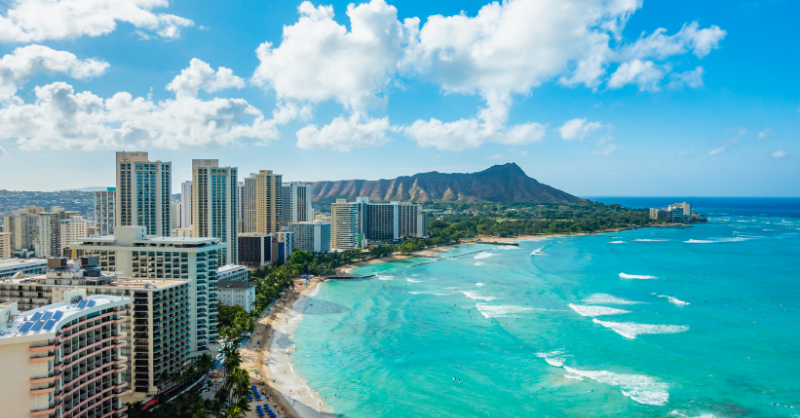Welcome to Documenting America’s Path to Recovery. Today we look at:
- An announcement about nonessential travel in Hawaii
- A bill limiting gubernatorial emergency powers in North Carolina
- Vaccine distribution
- School mask requirements
- State proof-of-vaccination requirements and policies
- Federal responses
We are committed to keeping you updated on everything from mask requirements to vaccine-related policies. We will keep you abreast of major developments—especially those affecting your daily life. Want to know what we covered Tuesday? Click here.
Upcoming news
What is changing in the next week?
Nebraska (Republican trifecta): On Oct. 21, Gov. Pete Ricketts (R) announced he was allowing inpatient elective surgeries to resume on Oct. 22. Ricketts paused elective surgeries at most hospitals in August because of a surge in coronavirus cases.
Since our last edition
What rules and restrictions are changing in each state? For a continually updated article, click here.
Hawaii (Democratic trifecta): On Oct. 19, Gov. David Ige (D) announced that vaccinated Hawaii residents and domestic visitors can resume nonessential travel to the state and between the islands beginning Nov. 1.
New Jersey (Democratic trifecta): On Oct. 20, Gov. Phil Murphy (D) issued an executive order requiring employees of new and potential state contractors who enter, work at, or provide services in a state agency location to show proof of coronavirus vaccination or receive a weekly coronavirus test.
North Carolina (divided government): On Oct. 20, the state House of Representatives passed the Emergency Powers Accountability Act 65-45. The Act limits gubernatorial emergency declarations to seven days unless the Council of State—a 10-person group that includes the attorney general and secretary of state, among others—approves an extension. The bill would also require the governor to seek the legislature’s approval for emergencies lasting longer than 45 days. The state Senate passed the Act 27-15 on Sept. 8. It now goes to Gov. Roy Cooper (D) for his signature.
Vaccine distribution
We last looked at vaccine distribution in the Oct. 19 edition of the newsletter. As of Oct. 20, the states with the highest vaccination rates as a percentage of total population (including children) were:
- Massachusetts (Republican governor): 79%
- Vermont (Republican governor): 79%
- Hawaii (Democratic governor): 78%
- Connecticut (Democratic governor): 78%
- Rhode Island (Democratic governor): 77%
The states with the lowest rates were:
- Idaho (Republican governor): 48%
- West Virginia (Republican governor): 49%
- Wyoming (Republican governor): 50%
- Mississippi (Republican governor): 51%
- North Dakota (Democratic governor): 52%
School mask requirements
Read more: School responses to the coronavirus (COVID-19) pandemic during the 2021-2022 academic year
We last looked at school mask requirements on Oct. 14. Since then, no states have changed their school mask requirement policies.
State proof-of-vaccination requirements and policies
Read more: State government policies about proof-of-vaccination (vaccine passport) requirements
State governments have enacted various rules around the use of proof-of-vaccination requirements. In some cases, states have banned state or local governments from requiring that people show proof of vaccination. Other states have assisted in the creation of digital applications—sometimes known as vaccine passports—that allow people to prove their vaccination status and, in some cases, bypass COVID-19 restrictions.
Overview
- Twenty states have passed legislation or issued orders prohibiting proof-of-vaccination requirements at some or all levels of government.
- Five states have assisted in the creation of digital vaccination status applications or enacted orders or laws exempting vaccinated people from some restrictions.
Since Oct. 14, one state has issued a statewide order requiring proof of vaccination in some circumstances. No state has issued orders or enacted laws banning proof-of-vaccination requirements.
Details
- On Oct. 18, Washington Gov. Jay Inslee (D) issued an order requiring indoor events with more than 1,000 attendees and outdoor events with more than 10,000 attendees to verify that people 12 and older have received a COVID-19 vaccine or tested negative for COVID-19 within the last 72 hours. The order takes effect Nov. 15.
Federal responses
Read more: Political responses to the coronavirus (COVID-19) pandemic, 2020
- On Oct. 20, the Food and Drug Administration (FDA) authorized booster shots of Johnson & Johnson’s and Moderna’s COVID-19 vaccines. The FDA also authorized people to mix vaccine doses from different pharmaceutical companies. The Centers for Disease Control and Prevention (CDC) was scheduled to meet Oct. 21 to consider the FDA’s authorization.
- On Oct. 19, the U.S. Supreme Court declined an emergency request to block Maine Gov. Janet Mills’ (D) healthcare worker vaccine requirement. A group of healthcare workers sued the governor because the mandate does not allow for religious exemptions. The mandate takes effect Oct. 28.
Additional activity
In this section, we feature examples of other federal, state, and local government activity, private industry responses, and lawsuits related to the pandemic.
On Oct. 20, New York City Mayor Bill de Blasio (D) announced that the city’s coronavirus vaccine requirement would extend to all city employees. Additionally, individuals who receive their first dose before the Oct. 29 vaccination deadline will receive a $500 bonus in their paycheck.


